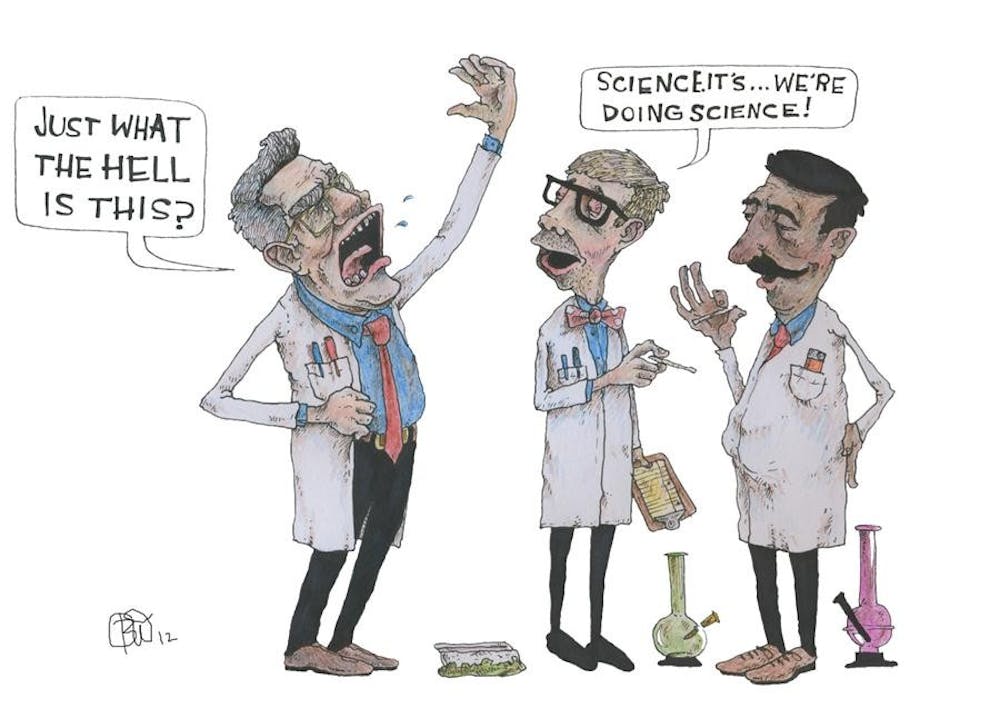The Drug Enforcement Administration must be wiping the egg from its face after it was announced last week that pot cures cancer.
Okay, that isn’t exactly true.
But the discovery by two scientists at California Pacific Medical Center that a compound found in marijuana can stop metastasis should still pry the legalization debate farther open.
Pierre Desprez and Sean McAllister have likely demolished a barrier in the search for a cure for cancer.
They found that a compound called Cannabidiol (CBD) can switch off the gene that causes metastasis in many aggressive cancers.
CBD is derived from marijuana; it is nontoxic and does not cause psychoactive effects.
Marijuana is indeed acknowledged to have medicinal effects that relieve symptoms of many diseases, including glaucoma, HIV/AIDS and cancer.
Although this might be seen as another strike against the DEA’s assertion that marijuana has no medical value, proponents of legalization should not seize this as an opportunity to run around saying “Pot cures cancer! Let’s legalize it and light up!”
That would technically be untrue.
Desprez and McAllister used injections to test CBD on animals because merely smoking marijuana would never deliver a sufficient dosage of the compound.
To say that the result of the experiment is a reason for relaxing our attitudes toward laws regarding drug use would discredit and embarrass the legalization
movement.
Rather, it’s the procedure of the research that should cause us to reexamine our values and laws on drugs. The pair of scientists synthesized CBD in a lab to stay out of trouble while trying to get their experiments approved.
Handling marijuana in a lab is not like handling plutonium or nerve gas. When substances are strictly controlled, the cost and controversy that goes into approving them for use can make research an arduous, expensive and sometimes impossible proposition.
Given the cost and time required by medical research — Desprez and McAllister’s work consumed 20 years — those barriers might make many institutions skittish about funding and carrying out studies of controlled
substances.
Many drugs, both illegal and legal, can do wonderful things in the fight against disease while simultaneously posing substantial dangers for addiction and harm.
LSD has been shown to help alcoholics give up drinking, and ecstasy can help people cope with PTSD.
Shady reputations, socially-cultivated stigmas and disputable scheduling regulations should not hinder scientists from researching any substance that could save, extend and improve human life.
That’s a goal we can say yes to.
Just say yes to research

Get stories like this in your inbox
Subscribe



